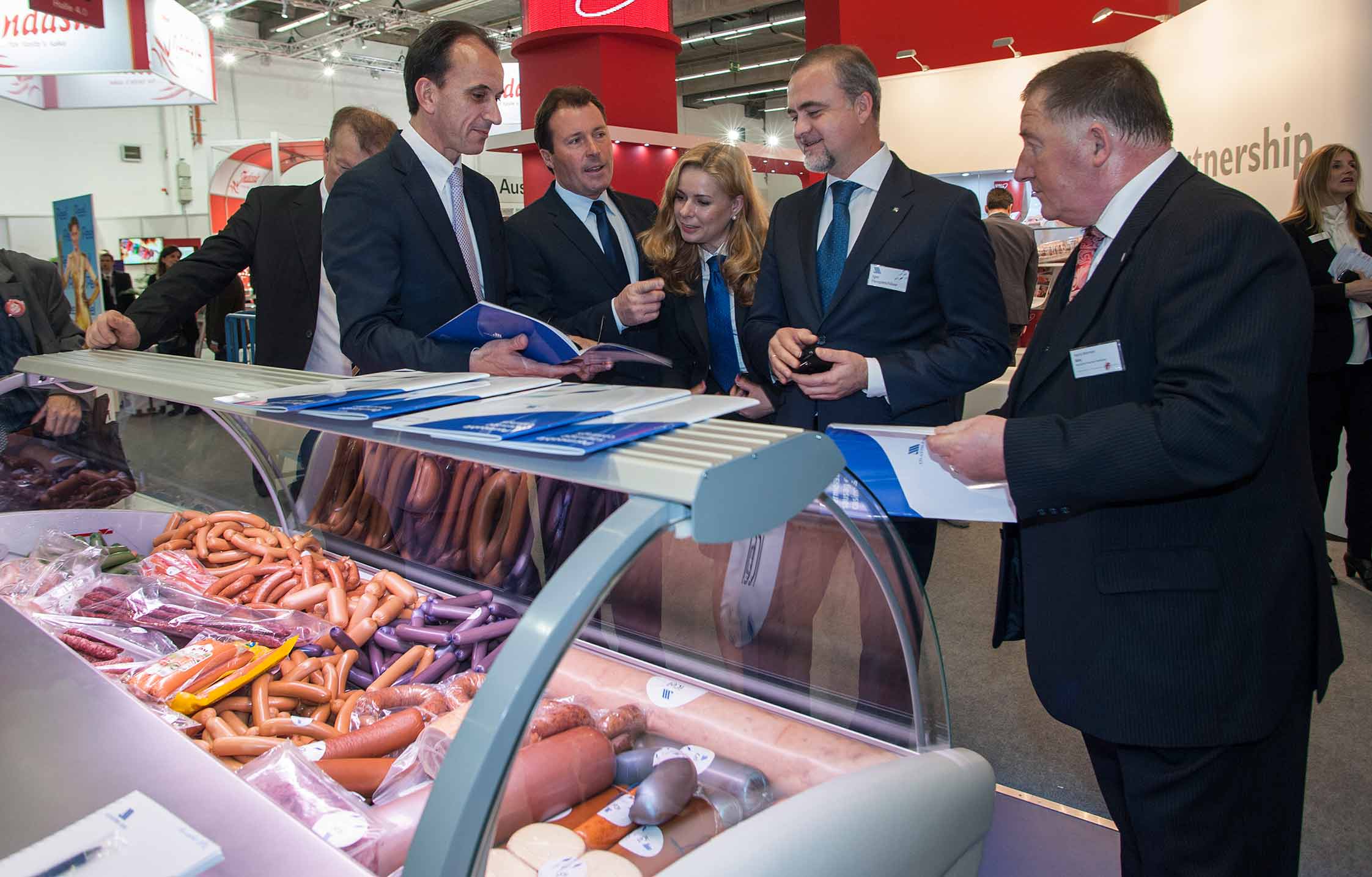IFFA 2019: Ways to Greater Sustainability In The Meat Industry

Sustainability in terms of resource usage and the employment of energy-efficient processes along the entire value chain is one of the foremost challenges of our time.
And this applies to the meat-processing industry, too. Intelligent control and automation technology, energy-saving drive systems, compressors, ventilators and pumps rank among the classic solutions for improving energy and resource efficiency.
The coming IFFA opens its doors in Frankfurt am Main from 4 to 9 May 2019. There, leading international companies will present the latest technologies and spotlight the most important trends and developments in the meat-processing industry. Sustainability in terms of resource usage and the employment of energy-efficient processes along the entire value chain is one of the foremost challenges of our time. The best-practice examples to be seen at the fair offer trade visitors a host of valuable ideas and decision-making tools.
“the widespread use of thermal and catalytic afterburning of emissions from smoking, grilling, frying and roasting plant is extremely energy intensive”
AVOID REFRIGERATION LOSSES
An unbroken and efficient cold chain is the top-most priority for food safety in the meat-processing industry. Refrigeration, frosting and deep freezing are the most important processes to prevent highly perishable products, such as meat and sausage products, from spoiling. Consequently, the demands on modern refrigeration plant, e.g., blast chillers, chilled and cold stores, cooling tunnels, spiral, plate and helical-band frosting systems, are growing rapidly.
However, cooling is one of the most intricate processes in energy terms. According to official estimates, refrigeration accounts for around 30 percent of total electricity consumption. In many cases, the cooling equipment is not perfectly suitable for actual requirements, which leads to lower levels of efficiency and higher energy costs. Modernising existing cooling plant and adapting it to current needs is a cost-efficient and ecologically purposeful way of increasing efficiency, e.g., by reconditioning the compressor, optimising the liquefier or retrofitting a heat-recovery system.
MAKE MULTIPLE USE OF HEAT
In addition to the production of cooling media, the provision of heat is also an energy and cost intensive process in the meat-processing industry, e.g., cooking, boiling, scalding and pasteurisation.
In such cases, waste heat from extracted air, steam and water can be recovered to a large extent via heat exchangers before being stored temporarily and subsequently used to heat washing water or room air. Other sources of waste heat include compressors, large motors and the waste water used to clean machines and plant.
CLEAN EXHAUST AIR EFFICIENTLY AND ECONOMICALLY
Replacing energy-intensive processes and technologies with cost-efficient methods, machines and plant is a fundamental prerequisite if internationally agreed climate and environmental targets are to be achieved. A starting point for this in the meat-processing industry is waste-air purification.
However, the widespread use of thermal and catalytic afterburning of emissions from smoking, grilling, frying and roasting plant is extremely energy intensive, expensive and environmentally harmful. Conversion to more energy efficient electric filters can cut energy costs by up to 80 percent compared to thermal afterburning at the same time as reducing carbon dioxide emissions significantly.
Depending on the purification requirements, additional modules can be added, e.g., emission cooling with heat recovery for heating process water, waste-gas scrubbing, UV lighting systems and bio and activated charcoal filters. Perfectly matched, these modules permit the highly effective, environmentally friendly and resource, energy and, therefore, cost-cutting emissions purification.
THE FUTURE OF CLEANING
Machines and plant designed in accordance with the principles of hygienic design are the current state of the art and a prerequisite for cleanliness, hygiene and food safety along all stages of the meat-processing chain. Hygienic design means fewer surfaces where food, dirt and microbes can adhere and thus savings in terms of time, water and energy, as well as detergents and disinfectants, when it comes to cleaning.
This is particularly true in combination with processes such as cleaning in place that, although it provides for defined and time-optimised cleaning, does not exploit the full potential of all cleaning processes. The reason for this is the predetermined cleaning procedures. Intelligent cleaning robots represent a completely new approach. Camera controlled, they adapt the cleaning process to the individual level of contamination of the machine or plant concerned. Their nozzles can be controlled individually and targeted accurately.
Moreover, the mobile robot also adapts its forward speed in accordance with the prevailing conditions. And, thanks to its intelligent software, it avoids spray shadows on even highly complex geometries, which leads to much improved cleaning results compared to conventional methods. Roughly speaking, robots have an around 50 percent lower volume flow coupled with a 20 percent increase in resource efficiency, i.e., a 20 percent reduction in water consumption.
ENERGY AND RESOURCE MANAGEMENT
The aspects outlined above are only a fraction of the measures that can be taken to boost energy and resource efficiency. Smart sensor technology, control and application software, the interconnection of machines and plant, control monitoring and the implementation of the principles of Industry 4.0 offer additional potential for saving time, labour and scarce resources.
The outlook for a successful IFFA is good: over 1,000 exhibitors from around 50 countries, including the market leaders, are making presentations in Frankfurt am Main from 4 to 9 May. On around 120,000 square metres of exhibition space, the manufacturers are showing innovative technologies, trends and future-oriented solutions for all stages of the meat-processing chain, from manufacturing to high-tech.
Source: IFFA












